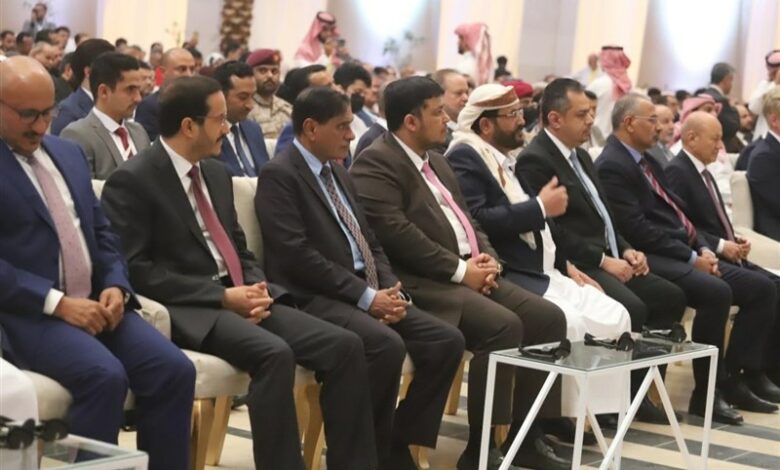America’s failure to build a coalition between Yemen’s Ansarullah opponents

According to the international group Tasnim News Agency, internal disputes in the Yemeni Presidential Council Despite the efforts of Saudi Arabia and the United States, it has increased again and intensified in cyberspace and among Yemeni politicians. This dispute started when “Mohammed Al-Ghaithi”, the head of the consultation and reconciliation committee (under the supervision of the presidential council), said: “For now, the main issue is the recapture of Sana’a, and the issue of the south is not an issue now.
Commenting by the person who is in charge of the reconciliation between the north and the south of Yemen by the presidential council within the structure of the presidential council, is not liked by the southerners. These statements were made after “Rashad Al Alimi”, the head of the Presidential Council, said in an interview that the priority is to negotiate and agree with the Houthis.
The Transitional Council of the South has established that from the point of view of the members of the government in exile who are members of the Presidential Council, the issue of the South (separation from North Yemen) is not important. The Transitional Council is proposed in the Presidential Council, which is the gathering place of the opposition forces of the National Salvation Government of Yemen. This is while Saudi Arabia, with great effort in April 2022, to control the growing tensions among Yemeni actors and create a united front against Ansarullah, formed the Presidential Council consisting of the survivors of the “Abd Rabbuh Mansour Hadi” government, armed groups in different regions, and separatists in the south. /p>
The problem here is that in recent months, the United States had also taken action to deal with Ansarullah in support of the Zionist regime to reduce tension within the Presidential Council. In order to create a political front against Ansarullah, who imposed an economic embargo against the Zionist regime in the Red Sea, the Americans tried to manage the differences between the northerners and the southerners in the presidential council.
On April 28-29, with the presence of 24 Yemeni political parties, groups and groups opposing the National Salvation government, it was held in Aden. This meeting, which was organized by the International Development Agency and the Center for Democracy attached to the US Department of State, led to a seven-point agreement that emphasized the principles of peace and cooperation between the actors opposing the Sana’a government.
This agreement emphasized clauses such as the fight against terrorism, the formation of an inclusive government, and solving the problem of the south (without mentioning independence), and American Ambassador Steven Fagin emphasized his country’s commitment to implementing these principles.
But at the same time, despite the mentioned efforts, the Southern Transitional Council, after the meeting under the leadership of the United States, addressed this meeting with a negative tone and criticized the non-inclusion of the right to secession and independence of the South to show that reaching a comprehensive agreement in Yemen How difficult it is.
Now, once again, these differences have been brought to the public arena, and southern media and activists on virtual networks have addressed the issue that southerners should decide their own fate from the Presidential Council. separate and pursue their goals independently. This means a big political defeat for America in Yemen; Because the Southern Transitional Council may move towards a ceasefire with Sana’a independent of the American coalition.
end of message/
| © | Webangah News Hub has translated this news from the source of Tasnim News Agency |


